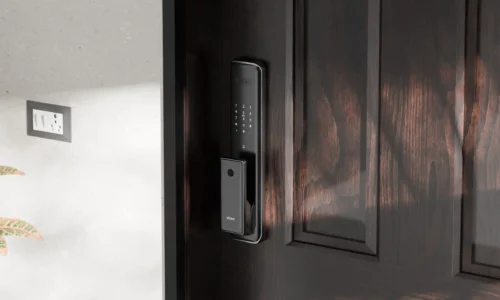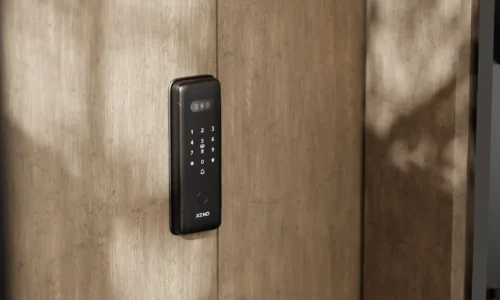
Unlocking the Potential: A Comprehensive Guide to Digital Door Locks
A Comprehensive Guide to Digital Door Locks
Introduction to Digital Door Locks
What are digital door locks?
Digital door locks, also known as electronic or smart locks, utilize electronic mechanisms to control access to a property. Unlike traditional locks that require a physical key, digital door locks rely on different authentication methods such as keypads, biometrics, or wireless connectivity.
Evolution of traditional door locks to digital ones
Traditional door locks have long been the primary means of securing homes and businesses. However, advancements in technology have paved the way for digital alternatives that offer enhanced security and convenience. Digital door locks represent a significant leap forward in access control systems, providing users with greater flexibility and peace of mind.
Benefits of Digital Door Locks
- Enhanced security features
One of the primary advantages of digital door locks is their enhanced security features. Unlike traditional locks that can be picked or tampered with, digital locks offer advanced encryption and authentication mechanisms that are significantly more difficult to bypass.
- Convenience and ease of use
Digital door locks eliminate the need for physical keys, making them more convenient to use, especially in situations where keys are easily misplaced or lost. With digital locks, users can access their properties using PIN codes, biometric scans, or even their smartphones, streamlining the entry process.
- Integration with smart home systems
Another benefit of digital door locks is their seamless integration with smart home systems. Many digital locks can be connected to home automation platforms, allowing users to remotely control and monitor their locks from anywhere using a smartphone or tablet.
Types of Digital Door Locks
- Keypad locks
Keypad locks require users to enter a PIN code to gain access. These locks are popular for their simplicity and reliability, offering a straightforward means of securing a property without the need for physical keys.
- Biometric locks
Biometric locks use fingerprint, retina, or facial recognition technology to authenticate users. These locks offer a high level of security and are virtually impossible to bypass without the authorized user’s biometric data.
- Bluetooth-enabled locks
Bluetooth-enabled locks allow users to unlock their doors using their smartphones or other Bluetooth-enabled devices. These locks offer convenience and flexibility, allowing users to grant temporary access to guests or service providers remotely.
Factors to Consider Before Purchasing
- Security features
When choosing a digital door lock, it’s essential to consider the security features it offers. Look for locks with advanced encryption algorithms, tamper detection mechanisms, and multiple authentication methods to ensure maximum security.
- Compatibility with existing door hardware
Before purchasing a digital door lock, make sure it is compatible with your existing door hardware. Some locks may require modifications or additional accessories to install properly, so it’s essential to check compatibility beforehand.
- Power source and battery life
Digital door locks require power to operate, so it’s crucial to consider the power source and battery life of the lock. Look for locks with long-lasting batteries or alternative power sources to ensure uninterrupted operation.
Installation Process
- DIY installation vs. professional installation
Depending on the complexity of the lock and your technical expertise, you may choose to install the lock yourself or hire a professional locksmith. DIY installation kits are available for some locks, but more complex installations may require professional assistance.
- Steps involved in installing a digital door lock
The installation process for digital door locks varies depending on the type and model of the lock. However, most installations involve removing the existing lock, installing the new lock mechanism, and programming the lock’s settings.
Tips for Maintenance and Care
- Regular battery checks
To ensure uninterrupted operation, it’s essential to regularly check the batteries in your digital door lock and replace them as needed. Most locks will alert you when the batteries are running low, but it’s a good idea to check them periodically.
- Cleaning and lubrication
Like any mechanical or electronic device, digital door locks require regular cleaning and maintenance to ensure optimal performance. Use a soft, dry cloth to clean the exterior of the lock and lubricate any moving parts according to the manufacturer’s recommendations.
- Software updates
Many digital door locks come with companion mobile apps or software that require periodic updates to ensure compatibility and security. Be sure to regularly check for updates and install them as needed to keep your lock operating smoothly.
Common Troubleshooting Issues
- Forgotten PIN or passcode
If you forget the PIN or passcode for your digital door lock, don’t panic. Most locks have a backup method for gaining access, such as a physical key or a reset option that allows you to reprogram the lock with a new code.
- Connectivity issues with smart home systems
If you’re experiencing connectivity issues with your digital door lock and smart home system, try troubleshooting the connection by restarting the lock and resetting the pairing process. If the problem persists, consult the manufacturer’s troubleshooting guide or contact customer support for assistance.
- Battery-related problems
If your digital door lock is experiencing battery-related problems, such as rapid battery drain or difficulty powering on, first check the batteries to ensure they are installed correctly and have sufficient charge. If the problem persists, try replacing the batteries with fresh ones or contact customer support for further assistance.
Future Trends in Digital Door Lock Technology
- Integration with AI and machine learning
As technology continues to advance, we can expect to see digital door locks integrating more advanced artificial intelligence and machine learning algorithms. These advancements will enable locks to learn and adapt to users’ behavior, enhancing security and convenience.
- Enhanced connectivity options
Future digital door locks will likely offer enhanced connectivity options, allowing them to integrate seamlessly with other smart home devices and platforms. This will enable users to create more comprehensive security systems and control their locks remotely from anywhere.
- Biometric advancements
Biometric technology is continuously evolving, and future digital door locks may incorporate more advanced biometric authentication methods such as voice recognition or DNA analysis. These advancements will further enhance security and make it even more difficult for unauthorized users to gain access.




This post provides clear idea for the new visitors of blogging, that actually how to
do running a blog.